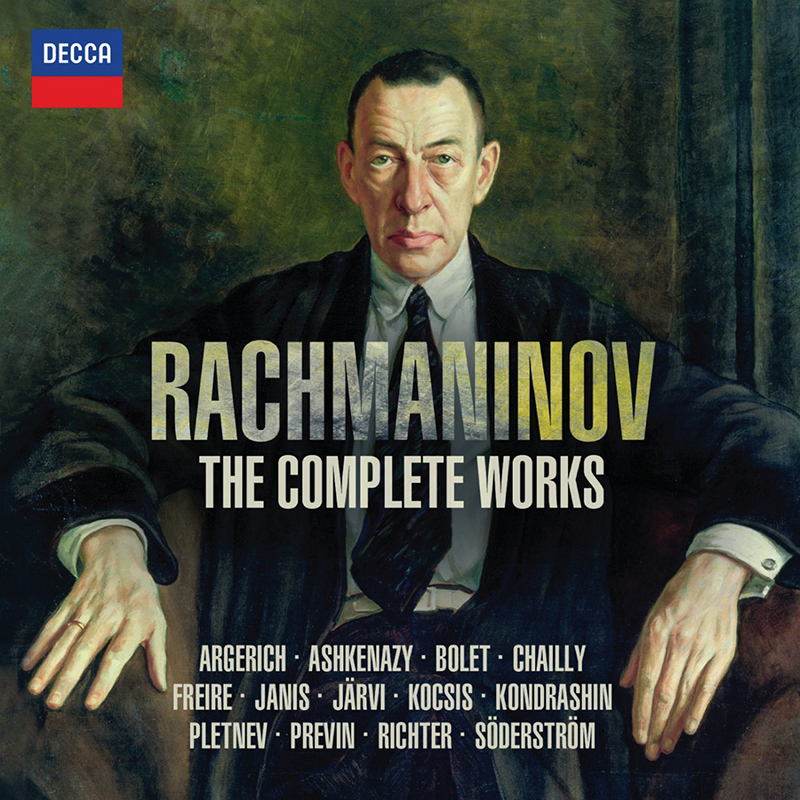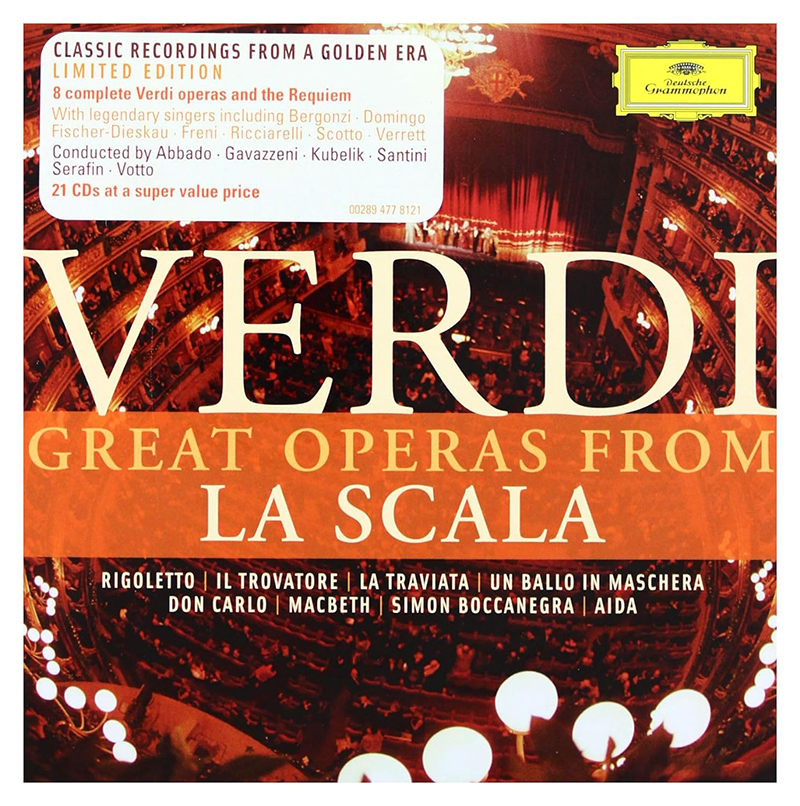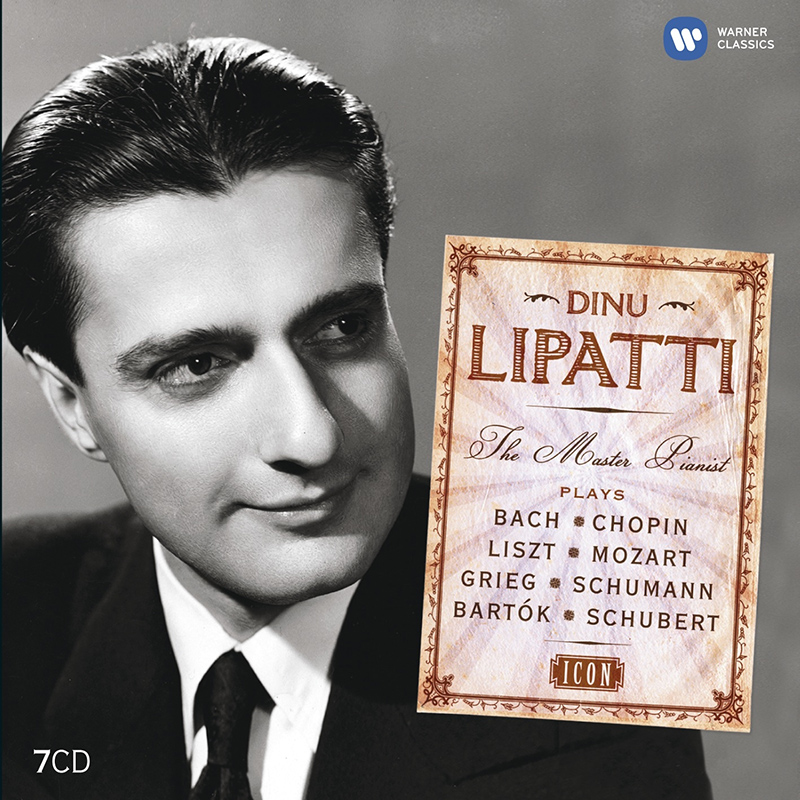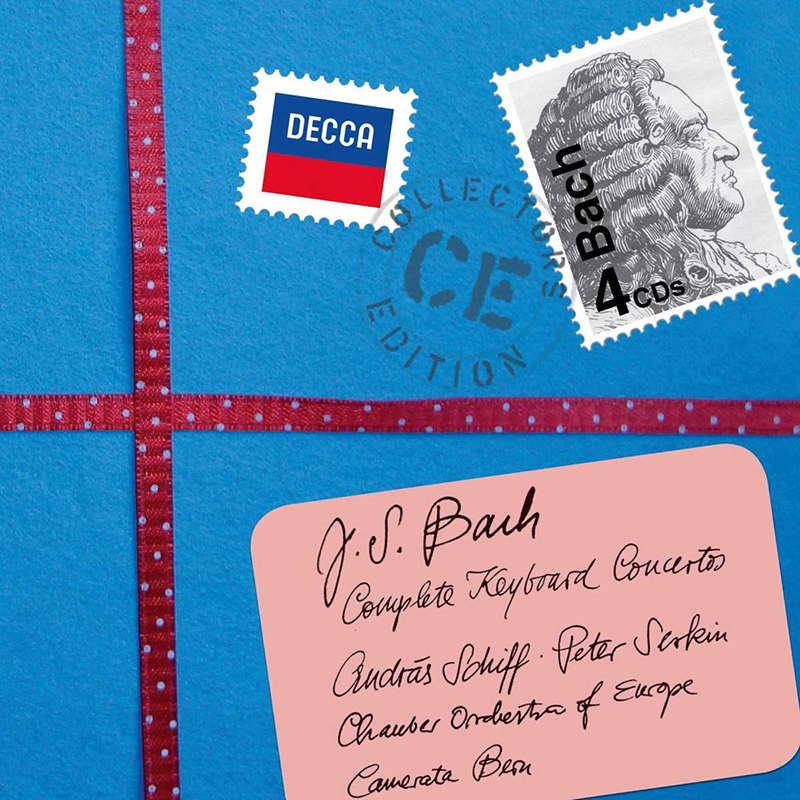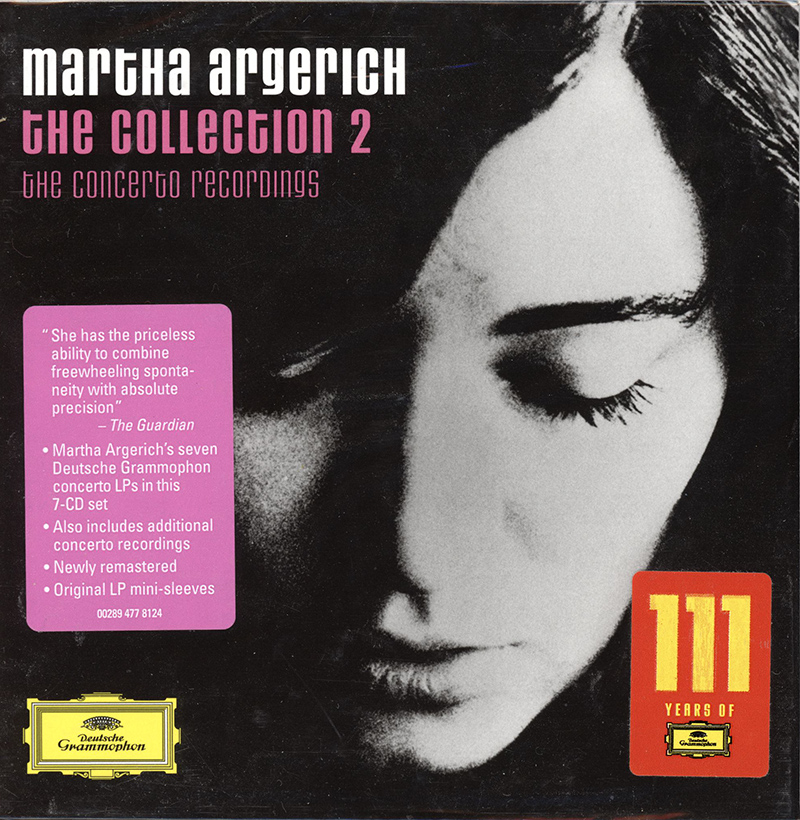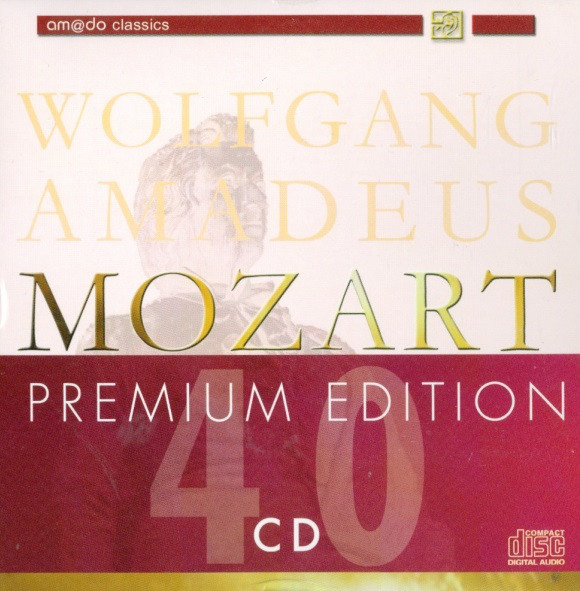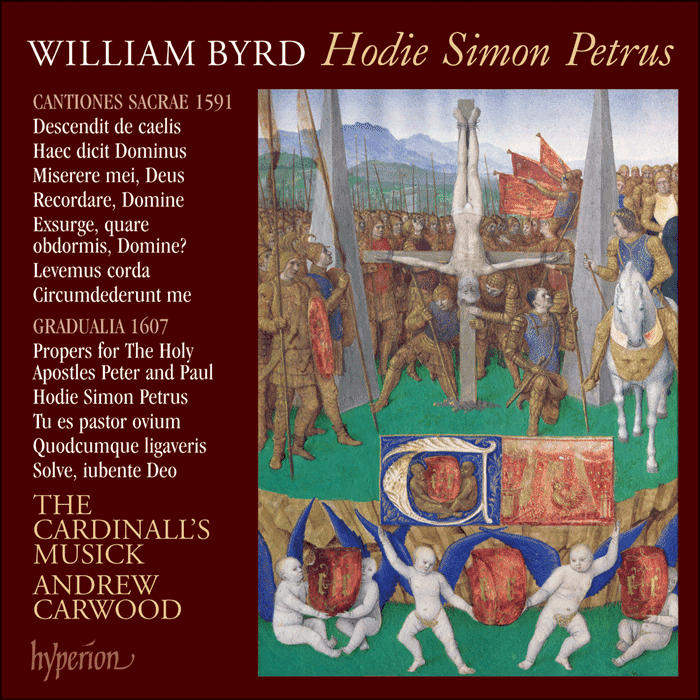Logowanie
KOLEKCJE!
BACH, CHOPIN, LISZT, MOZART, GRIEG, Dinu Lipatti, Otto Ackermann, Ernest Ansermet
The Master Pianist
PROKOFIEV, CHOPIN, TCHAIKOVSKY, SCHUMANN, BEETHOVEN, Martha Argerich, Claudio Abbado, Giuseppe Sinopoli
The Concerto Recordings
The Collection 2
Jakość LABORATORYJNA!
ORFF, Gundula Janowitz, Gerhard Stolze, Dietrich-Fischer Dieskau, Deutsche Oper Berlin, Eugen Jochum
Carmina Burana
ESOTERIC - NUMER JEDEN W ŚWIECIE AUDIOFILII I MELOMANÓW - SACD HYBR
Winylowy niezbędnik
ClearAudio
Essence MC
kumulacja zoptymalizowana: najlepsze z najważniejszych i najważniejsze z najlepszych cech przetworników Clearaudio
Direct-To-Disc
PIAZZOLLA, ChamberJam Europe
Tangos del Ángel y del Diablo
Direct-to-Disc ( D2D ) - Numbered Limited Edition
BYRD, The Cardinall's Musick, Andrew Carwood
Hodie Simon Petrus
- 1 Descendit de caelis [5'33]
- 2 Tu es pastor ovium [2'03]
- 3 Miserere mei, Deus [3'04]
- 4 Circumdederunt me [4'50]
- 5 Quodcumque ligaveris [4'16]
- 6 Recordare, Domine [6'04]
- 7 Exsurge, quare obdormis, Domine? [4'17]
- 8 Laetania 'Kyrie eleison' [8'57]
- 9 Nunc scio vere [5'23]
- 10 Constitues eos principes [3'07]
- 11 Tu es Petrus [2'12]
- 12 Levemus corda [4'45]
- 13 Hodie Simon Petrus [3'53]
- 14 Solve, iubente Deo [2'40]
- 15 Haec dicit Dominus [6'43]
- The Cardinall's Musick - orchestra
- Andrew Carwood - conductor
- BYRD
This latest release in The Cardinall’s Musick complete Byrd Edition is surely one of the most eagerly-awaited events in the early music calendar. Previous discs in this award-winning survey of the greatest composer of the age have commanded the highest possible critical acclaim. Performances of filigree clarity, yet great passion and sincerity, allow the composer’s particular genius to shine forth in an unhindered blaze of glory. The works in this eleventh volume present Byrd the recusant: covering the last year of his fashionable career in London and moving to a quieter life in the Essex countryside. The music is from two sources: the magnificent Cantiones Sacrae of 1591 and the Gradualia from 1607. The seven motets from 1591 show Byrd to be pre-occupied with thoughts of desolation, loss, deprivation and separation—familiar ideas for the recusant Catholic community. A feeling of angst in the music is leavened by a sense of salvation and a glimmer of hope that is the composer’s constant refrain. The Gradualia contains some of the most imaginative, modern-sounding and energetic music that the composer ever wrote. The Cardinall’s inspirational director Andrew Carwood sets the scene with fascinating booklet notes that illustrate the complex political and religious circumstances in which this great music was engendered. ------------------------------------ 'This performance is unparalleled in its depth of expression and intelligence. The Cardinall's Musick unerringly leads the listener to musical events that unlock Byrd's conception … Crystalline sound reproduction ensures that every detail is captured. The imaginativeness of the selections for this disc attests to the scholarly expertise informing its production. In short, this performances brings us into the 'heavenly kingdom' longed for by Byrd' (BBC Music Magazine) 'The Cardinall's Musick appeal like the most ardent supplicants at the altar rail. The flowing lines are rich with character and the blend is a bold mixture of individuals' (Classic FM Magazine) 'The works for St Peter and St Paul … positively shimmer with exuberance … The beauties of these performances are revealed: litheness, energy and intelligence' (International Record Review) 'The performances are admirably directed, responsive to words, clear in their exposition of counterpoint, carefully blended in the homophonic passages. The Cardinall's Musick is an expert body of singers who know exactly what they are doing' (Gramophone) 'The completion of this series will be a landmark, but don’t wait to hear this beautiful disc' (Fanfare, USA) 'The Cardinall's Musick is certainly one of the world's more authoritative sources for well-researched, committed, fully engaging performances of Byrd's music, and anyone who wants to know the entire range of his work needs no further encouragement from me in making this newest release their next acquisition' (ClassicsToday.com, USA) 'It may have been quite a long time coming but this eleventh disc from The Cardinall's Musick in their monumental exploration of William Byrd has certainly been worth the wait. The programme is built from the Cantiones Sacrae of 1591 and the Gradualia of 1607 and focuses on Byrd's recusant music. Throughout their series of recordings this method of interspersing the three books of Cantiones Sacrae with the two of Graduallia has been highly successful and what is most exciting is that it allows Andrew Carwood to be the first director to record the entire music from the Gradualia in liturgically appropriate combinations. Opening this album is the exquisite six-voice setting of Descendit de caelis which immediately confirms that these are performances that are every bit as good as the previous award-winning volume. There can be very few singers in the world just now that have such an understanding of Byrd's vocal works as The Cardinall's Musick and here they give impassioned and immediate performances that move on from the early music stereotypes that used to dominate in this field' (Musical Criticism.com)
